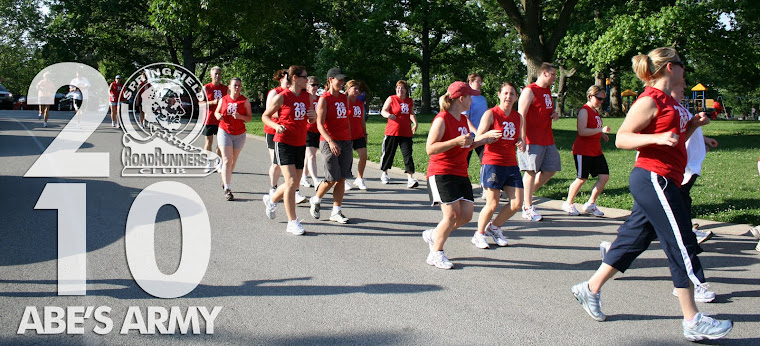This is part three of the Five Stages of a Runner. (See previous posts for stages one and two).
There is a competitive streak, sometimes hidden, in all of us. As we continue to run, it will most likely surface. If kept under control, the competitive urge can be a great motivator, stimulating you to train well and to push yourself further than you might have otherwise. But with many runners, competition, rather than the many other benefits of running, becomes the goal.You become a competitor when you start to plan your running around racing goals. It all starts innocently enough. After a few races you begin to wonder how fast you might run if you really trained. Before you know it you’re caught in a compulsive drive to run faster at the expense of running enjoyment.
Not all joggers enter this stage. Many simply remain joggers while a very few pass directly to the stage of “runner.” If you do find yourself becoming obsessed with competition, however, here are some things you might expect:
Initially the competitive spirit is exciting and rewarding. You’re running faster because of increased training. You read everything you can on training, stretching, nutrition, etc., and become somewhat of an expert on each. There are always new training techniques to try out and you give them all a whirl. (Only later do you realize that many of them are contradictory.)But as the competitive drive grows, you start feeling insecure. You no longer value your daily runs for their own worth, but think only of how well they prepare you for races and better times. Missing a run seems to spell racing doom. You can almost feel the fat being deposited on your body and see the seconds you fought hard to erase ticking back on the clock. When you hear of a workout a friend has performed before achieving a personal record, you have to match it or die trying.
Occasionally you’ll run alone, but often you’ll seek out small groups of better runners to train with and find you’re making every workout a race; you’ll push the pace to “victory” or make others earn theirs. In the same way, every race becomes a challenge to a new personal record. You may begin to choose races for the ease of terrain and lack of quality competition.
Once the competitive spirit has taken over you tend to lose sight of your limitations. If a small mileage increase brought about a small improvement, you’ll try large mileage increases to gain a large improvement. Although you’ve read many times about the need for rest, you feel that yours is a special case — you don’t need as much recovery time as other mortals. For weeks you may feel tired most of the time, yet have trouble sleeping at night. You become irritable and make life difficult for your family and friends. Finally you push too far and break down with injury, sickness or fatigue, and you either can’t or don’t want to run.
At this point you may feel betrayed by your body. Here you are trying to mold it into greatness and it won’t respond. You fail to realize the improvements you’ve made during the past months or year and only visualize your fitness slipping away, your goals going down the drain. Thinking that your body is tricking you (or that an injury layoff is a sign of weakness) you get back into training too soon. Trying to run through the problems only makes them worse and leads to new injuries, and you miss the very races you’ve pushed yourself so hard for.
Still, when the frustration has passed (and the pounds have settled back on) you’ll probably start running again. Hopefully you’ll have learned a lesson. You’ll “recycle” and work your way up the ladder again. When you’ve put competition into perspective you’ll pass into the stage of “athlete,” or even “runner.”
There are some very positive lessons to be learned from competition and fortunately not all competitors have to go to such extremes to learn them. Pushing through tiredness and discomfort in a race to a new personal record is not only rewarding in itself, but gives you an idea of what you can do in other areas of your life. Strengths we have never used lie buried in each of us. Being challenged to our limits through competition helps these surface. Competition can be the path-finding mission which allows us to map our inner resources. At the same time, experiencing some frustration and pain can help us realize our limitations. By struggling we discover a bit more about the person inside us; we can learn from our mistakes and move on to new heights.
Subscribe to:
Post Comments (Atom)

No comments:
Post a Comment